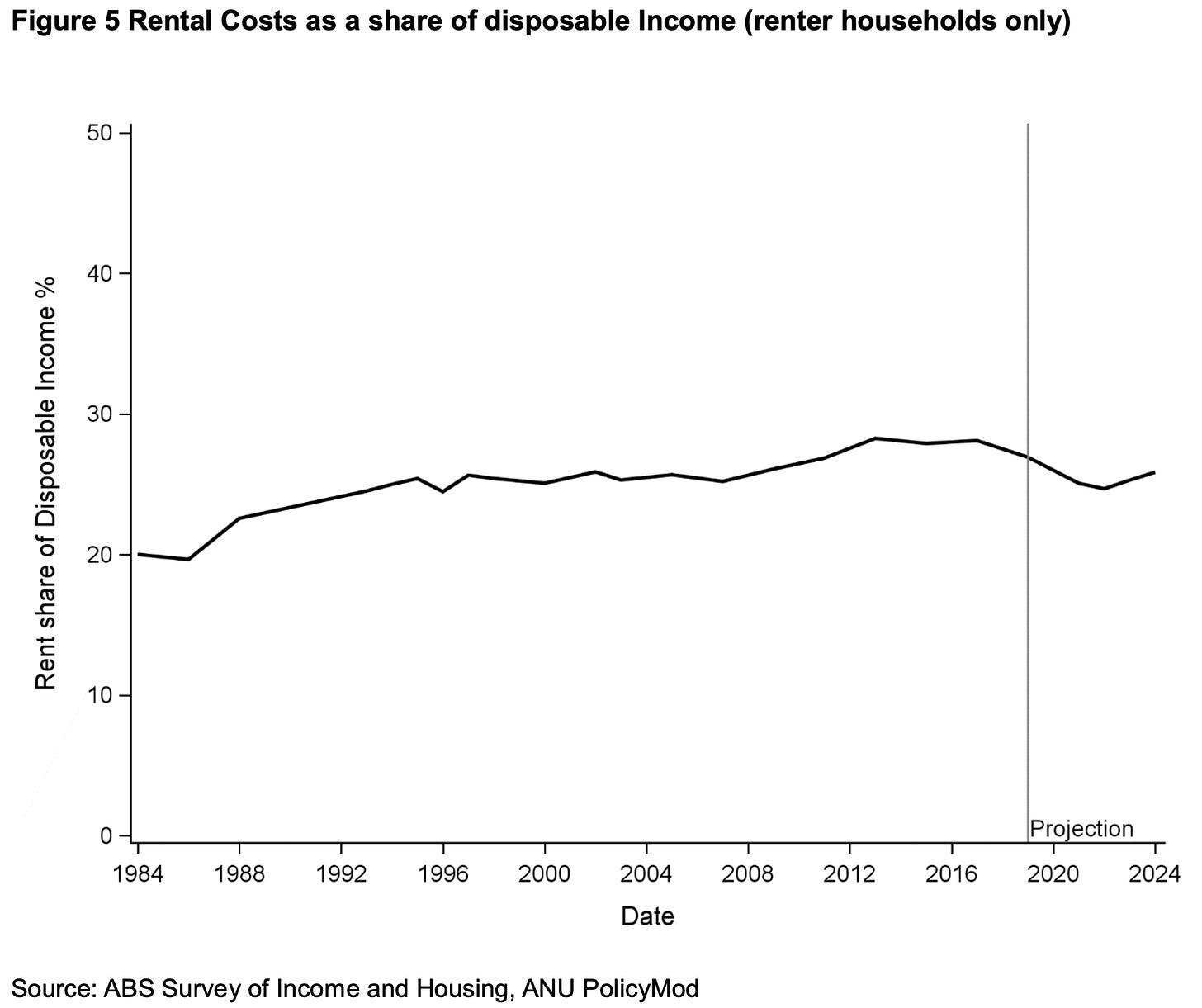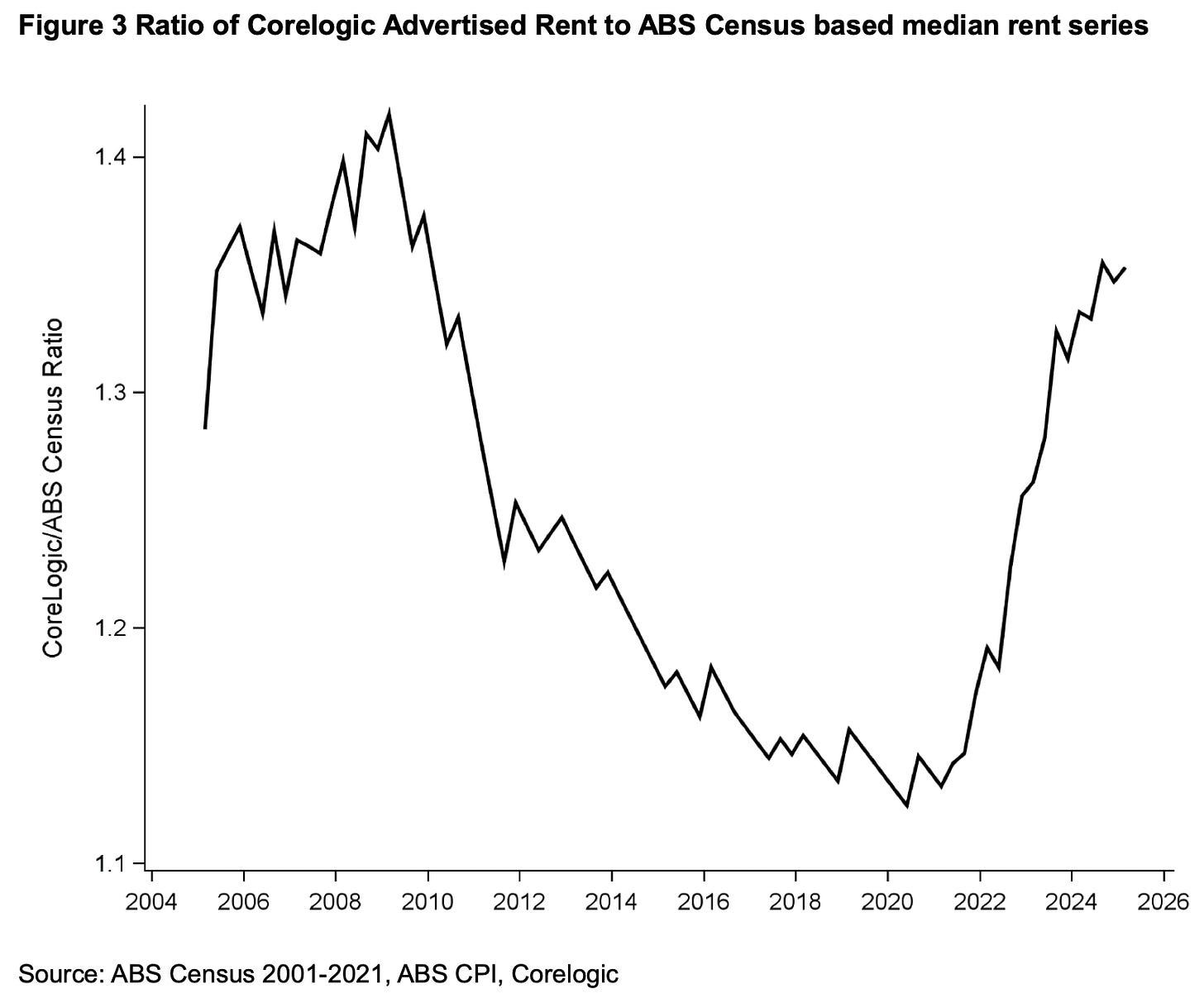Given the Australian media’s obsession with the housing crisis, it would come as a shock to many that the share of after-tax disposable income spent on rent by renter households is lower in 2025 than it has been for most of the last decade.
But that’s what ANU Professor Ben Phillips found in his latest research on rental affordability (you can find it here or download it below).
In today’s FET video podcast, I chat with Ben about this surprising data and how we can make sense of it in light of current housing “crisis” debates.
A key part of the story is this chart. It shows the share of disposable income (after-tax) income spent on housing for renter households. Notice that the most unaffordable period by this metric was 2012-2018.
The situation is not great for renters on the lower incomes.
There are people struggling at the bottom of the income distribution to keep up and rent where they previously could. But they are struggling to compete with those household who can pay higher rents.
One interesting part of our discussion was the big difference between the price growth in rent advertisments and price growth of rents paid by all renter households. The chart below, from Ben’s report, shows that advertised rents (in this case using Corelogic’s data) diverge from rents paid by all renters in a cyclical way, and by a surprising amount, with advertised rents being between 10% and 40% higher than rents paid by all renters.
Currently, the gap is near record highs.
The existence of a gap comes from the fact that turnover in the rental market is about 2.5% per month, or 30% per year, and the distribution is such that some properties turnover more than others and hence appear more regularly in the advertised rental figures. But why is the gap so cyclical?
We also chat about the fierce media debate playing out around the proposal to increase tax on the gains in superannuation accounts for the marginal amount over $3 million, which is just the top 0.5% of accounts.
This has been a hot topic online.
We chat about the feverish and unhinged reaction to what is a minor tightening up of an overly generous tax break that affects very few people.
And if you missed my recent deep dive into why scrapping superannuation could make us all better off, try this article.
As always, please like, share, comment, and subscribe. Thanks for your support. You can find Fresh Economic Thinking on YouTube, Spotify, and Apple Podcasts.
Theme: Happy Swing by Serge Quadrado Music—Creative Commons Licence CC BY-NC 4.0
Interested in learning more? Fresh Economic Thinking runs in-person and online workshops to help your organisation dig into the economic issues you face and learn powerful insights.













